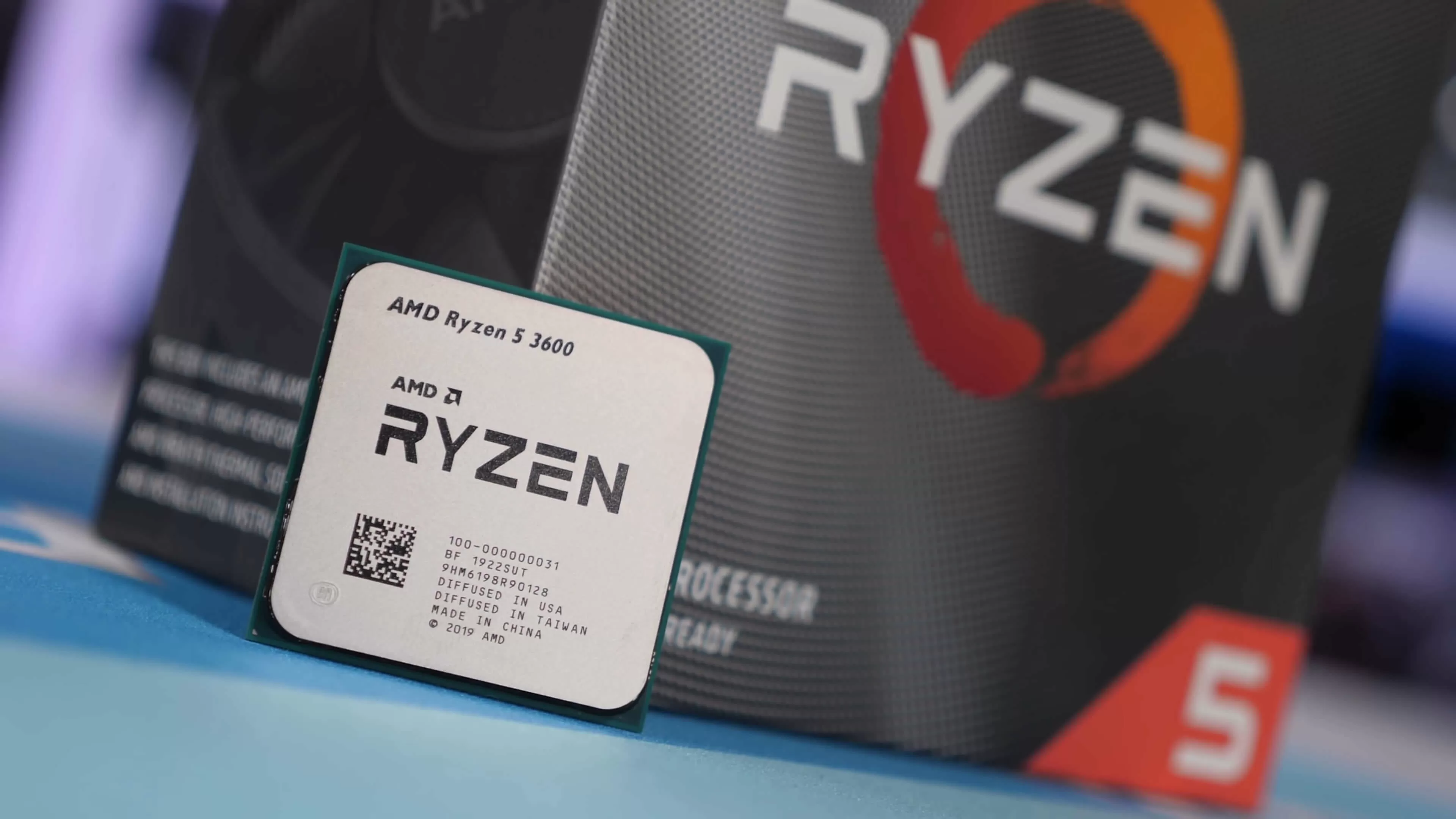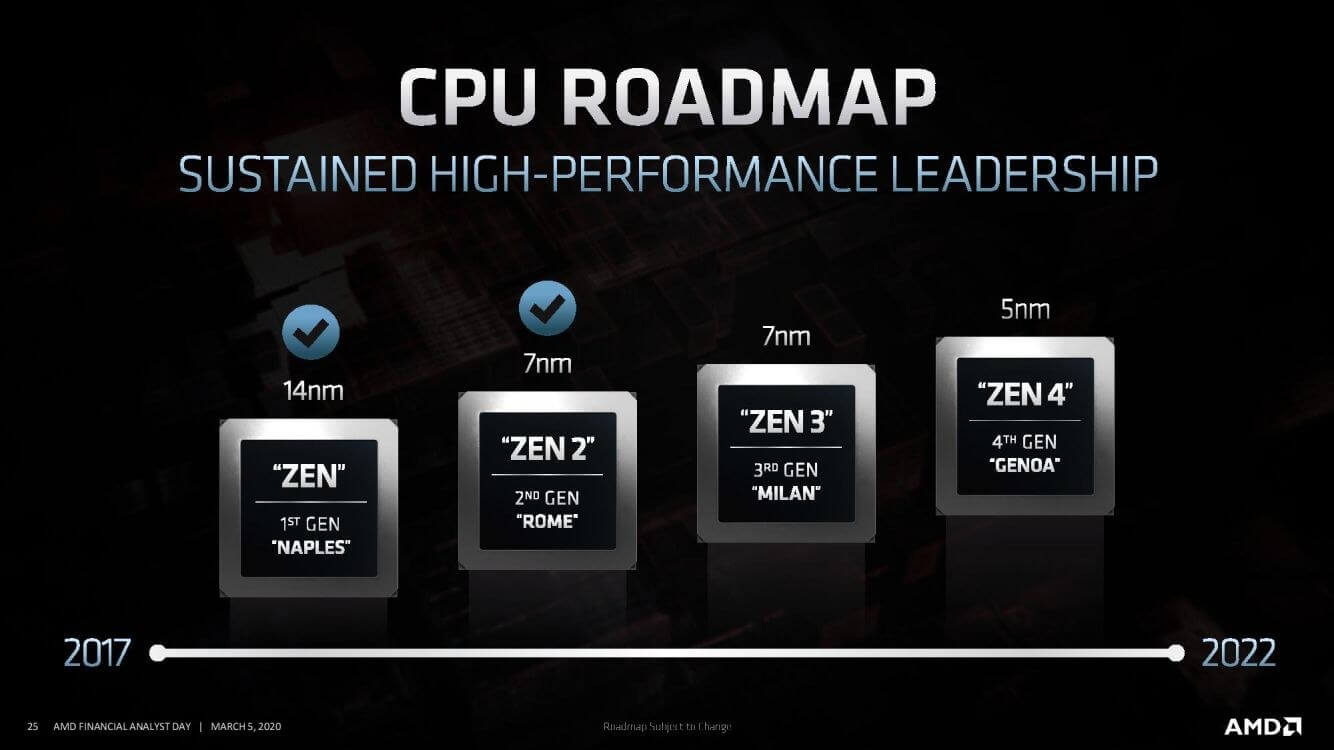Rumor mill: AMD’s Ryzen 4000 Vermeer series of desktop CPUs, based on the Zen 3 architecture, is expected to arrive later this year. The company has already revealed in a roadmap that the 7nm process will be used for Zen 3, but a new report claims the upcoming Ryzen 4000 series will be built on the 5nm node.

The claim is from DigiTimes (via Tom’s Hardware), which does have a slightly hit-and-miss record when it comes to these things. It states that TSMC is expected to start volume production of an enhanced version of its 5nm finFET process (5nm Plus) in the fourth quarter of 2020 and that the new Ryzen 4000 chips will be based on this node.
We heard back in December that TSMC was to start production on 5nm sometime during the second half of the year, so that checks out. Apple is releasing its iPhone 12 lineup this fall, which are powered by the 5m-based A14 Bionic SoC. As such, Cupertino is reported to have reserved two-thirds of TSMC’s 5nm capacity.
Huawei also had TSMC’s 5nm capacity booked, but the renewed tensions between the US and China have reportedly brought an end to that deal. The manufacturer could be looking elsewhere to fill Huawei’s slots, though the chances of AMD securing the process for Zen 3 appear slim. It's worth noting that another rumor claims Nvidia is preparing a mystery 5nm product.
March saw AMD release its CPU roadmaps that showed Zen 3—the fourth generation of Ryzen chips—built on the 7nm process. The Zen 4-based Epyc Genoa processors, available by the end of 2022, are based on 5nm, and the consumer version of these CPUs are also expected to be 5nm.

“I think 5nm is an important node, and one that we will use quite heavily in our roadmap. I'm not ready to talk about timing yet, but I will say that Zen 4 is deep in design, and we are very collaborative with TSMC,” said AMD CEO Lisa Su. “The way to think about it is, the process nodes usually start with mobile, and mobile is usually a simpler process from the standpoint of the performance it is trying to get. [...] 5nm will be important for Zen 4, as well as our GPU roadmap, will be using 5nm, but we'll talk about timing as we get a little bit closer.”
With AMD publicly stating that the Ryzen 4000 desktop series will be based on 7nm, it’s extremely unlikely that it would, or even could, change its mind so close to launch.
In other AMD news this week, it’s rumored that Ryzen 3000XT CPUs with higher clock speeds are on their way, while long-time Intel users Linus Torvalds has abandoned Chipzilla’s processors after 15 years in favor of a Threadripper 3970x.
https://www.techspot.com/news/85425-zen-3-based-ryzen-4000-desktop-chips-reportedly.html